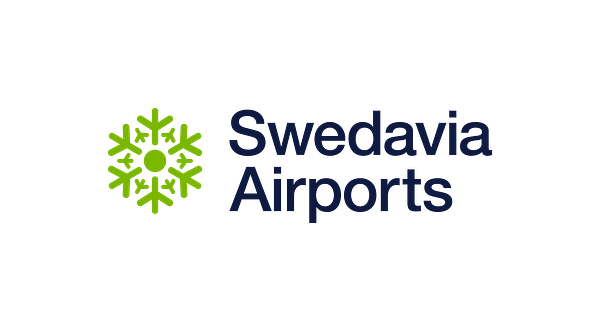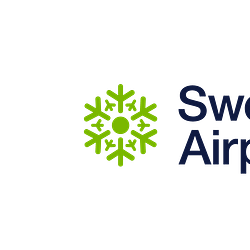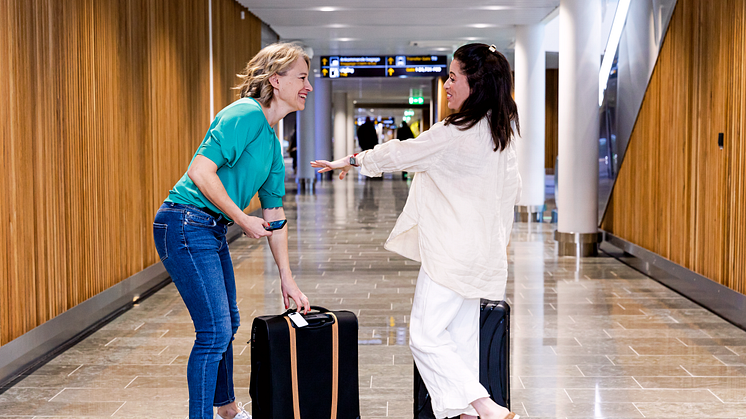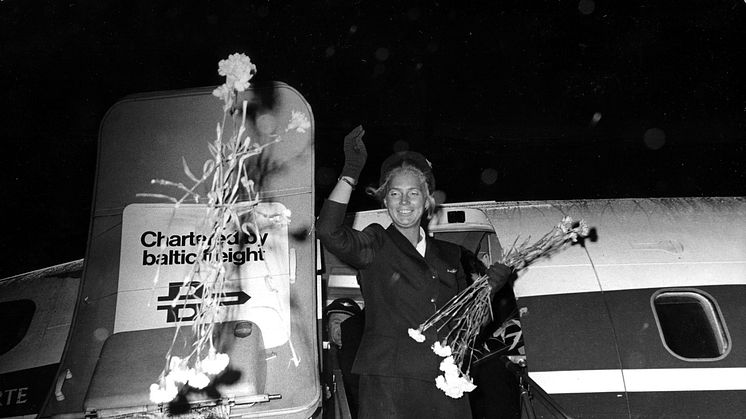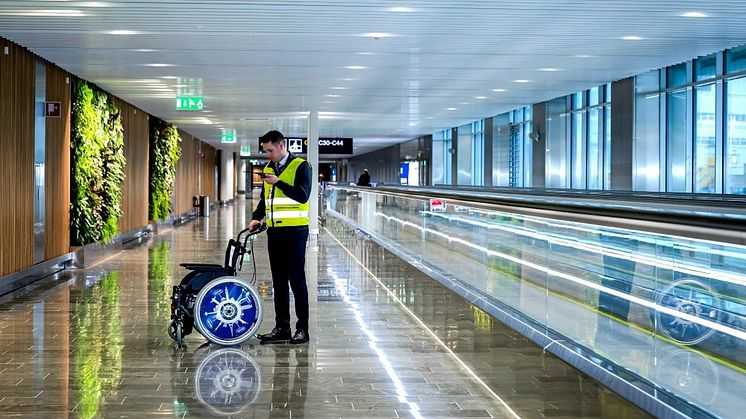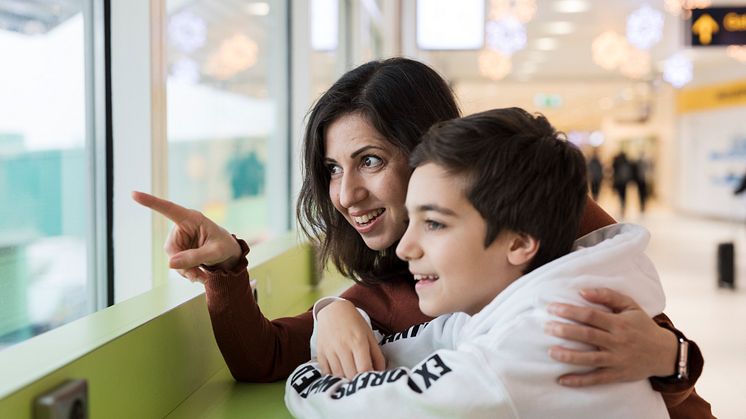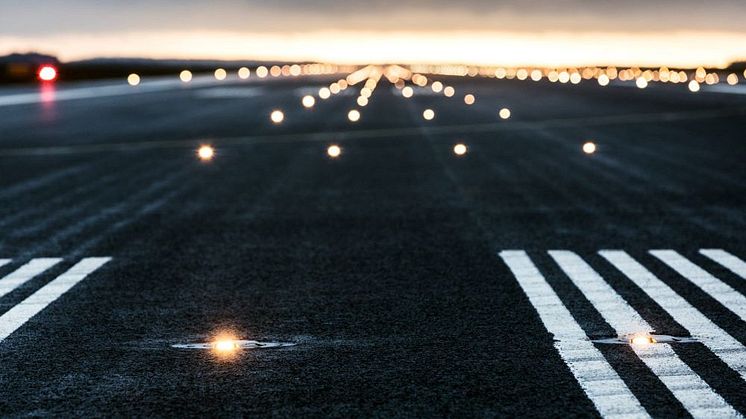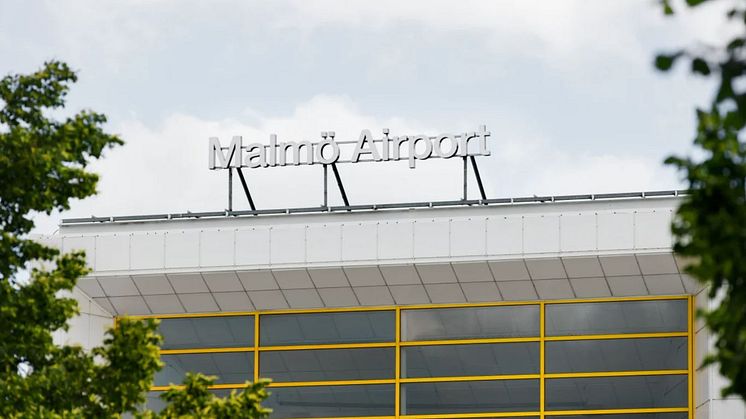
Press release -
Malmö Airport to invest in electric aviation – will be test arena for Heart Aerospace’s electric aircraft
Swedavia has decided to make Malmö Airport available as a test arena for Heart Aerospace’s ES-30 electric aircraft. The full-scale model aircraft will be tested and used to demonstrate taxiing and charging at the airport. Also taking part in the test activities alongside Swedavia are Heart Aerospace, the airlines BRA and SAS, and the Swedish battery developer Northvolt. The project has received SEK 20 million in co-financing from the Swedish innovation authority Vinnova.
Malmö Airport will now take on an important role in the work to achieve fossil-free aviation, and the infrastructure for charging aircraft at the airport will continue to be developed when the airport serves as host for test activities involving the ES-30 electric aircraft. The ELISE project to promote electric aviation in Sweden serves as the basis for the work. The project was launched in the spring of 2018 with the aim of coordinating advances in Swedish electric aviation by using international positioning, assessing societal needs and making a technology inventory.
“As an airport operator, Swedavia continues to be an active partner in aviation’s necessary energy transition by being involved in and developing the electric aviation of the future. Malmö Airport is uniquely situated, given its proximity to mainland Europe, is the largest airport in southern Sweden and is focused on international cooperation, which provides exciting opportunities for electric aviation and makes the airport an ideal test arena for the continued development of Swedish electric aviation,” says Karin Öhrström, airport director at Malmö Airport.
For the second phase of the ELISE project, the intention was to develop a Swedish-made electric aircraft, and the result was the design of the ES-19 regional electric aircraft, with seating for 19 passengers. In the third phase, the goal is to create and test a full-scale model of Heart Aerospace’s new ES-30 electric aircraft, with seating for 30 passengers, which is equipped with a battery pack that can be charged and then tested and demonstrated at Malmö Airport.
“It is very gratifying that Swedavia can contribute with our pooled knowledge and skills in electric and battery-powered aircraft. Battery-powered aircraft will contribute to the energy transition and in the long term, all of Swedavia’s airports will provide infrastructure for handling electric aircraft. Naturally, it is important that we can be an arena for taxiing and charging tests, which we will conduct together with our partners,” says John Nilsson, strategic planning manager for electric and hydrogen-powered aircraft at Swedavia.
Swedavia is working to bring about the aviation industry’s energy transition through a variety of measures, including by taking part in a number of projects linked to promoting fossil-free aviation, in particular the development of electric aircraft and – in the long term – hydrogen-fuelled aircraft. Today there are charging stations in place for electric aircraft at Visby Airport and Åre Östersund Airport, among other airports. Previously, Swedavia was involved in a case study using electric aircraft for a route between Umeå Airport and Åre Östersund Airport, took part in the MODELflyg project, which was focused on developing a simulation model for determining what is required to meet an increase in electric aviation, and participated in the project Fossil-Free Aviation in Northern Sweden.
Facts about ELISE 3
- This project has received SEK 20 million in funding from the Swedish innovation authority Vinnova and is the third phase of the ELISE project, which is aimed at creating better conditions for electric aviation in Sweden.
- The consortium involved in the project consists of Swedavia, Heart Aerospace, Northvolt, BRA and SAS.
- Members of the project’s advisory board include the Swedish trade organisation for regional airports Sveriges Regionala Flygplatser, RISE Research Institutes of Sweden, Bromma Air Maintenance, the Swedish Civil Aviation Administration, the Swedish Transport Agency and the Swedish Transport Administration.
- The project was launched in the summer of 2023 and is expected to run until the spring of 2025.
- Malmö Airport will serve as host for the project’s tests and demonstrations for the taxiing and charging of the ES-30 electric aircraft.
- The electric ES-30 was developed by Heart Aerospace, can carry 30 passengers and is expected to be in commercial operation in 2028.
For further information, please contact Swedavia’s press office at +46 (0)10-109 01 00 or press@swedavia.se.
Topics
Categories
Swedavia is a group that owns, operates and develops 10 airports throughout Sweden. Our role is to create the connectivity that Sweden needs to facilitate travel, business and meetings. Satisfied and safe travelers are the foundation of Swedavia's business. Swedavia is a world leader in the development of airports with the least possible climate impact. Since 2020, Swedavia's own airport operations have been fossil-free at all ten airports. The group's turnover in 2022 was approximately SEK 4.8 billion and approximately 2,400 employees.
